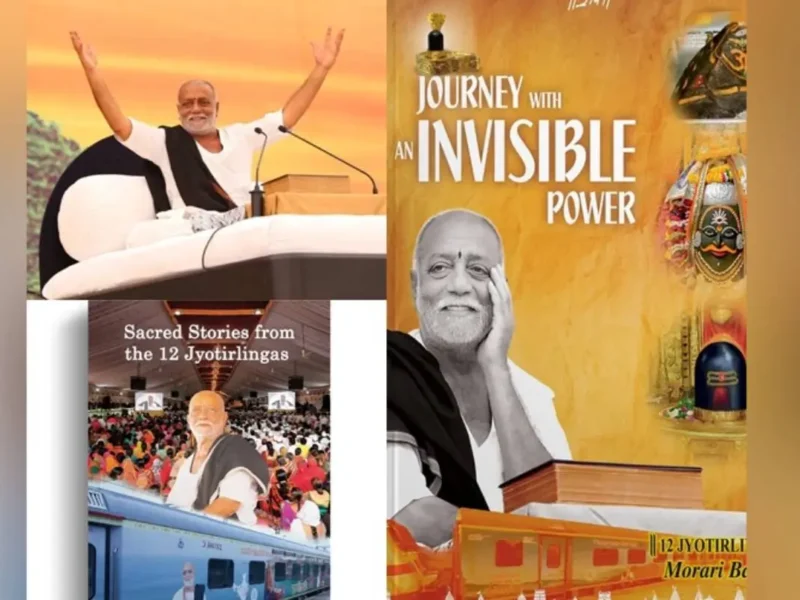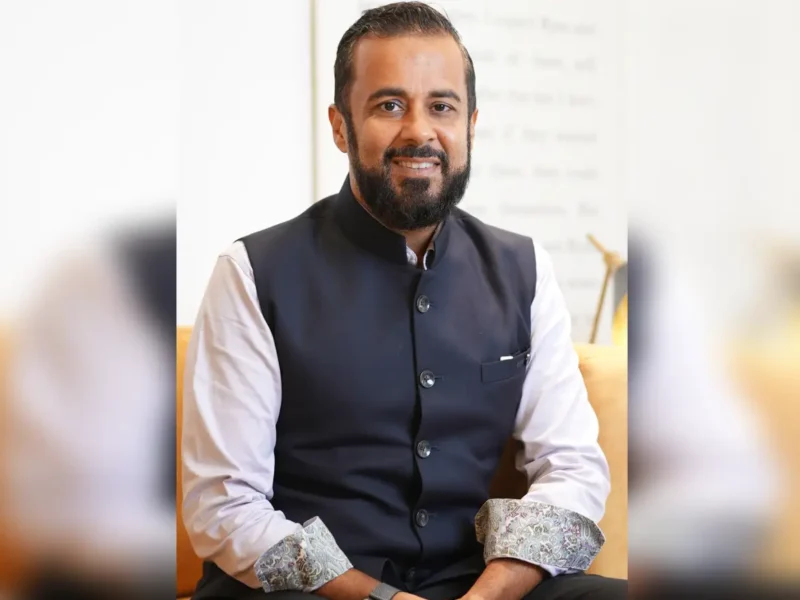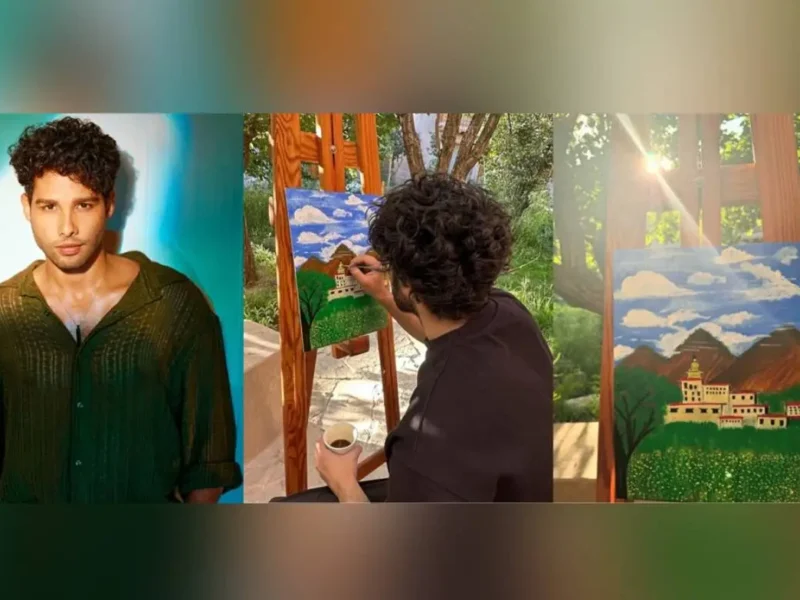Ujjal Dosanjh: Caste Exists Outside India
CHANDIGARH, (IANS) – A hard critic of the Khalistan movement and the survivor of a brutal attack in Vancouver in 1985, this 76-year-old former Canada’s British Columbia premier of Punjab origin, who first emigrated to Britain at the age of 18 and then to Canada, has pain for a Dalit, the curse of the caste system.
For Ujjal Dosanjh, born to a Jat Sikh family of landowners, racism and casteism, both man’s inhumanity to man, still exists unabated in the 21st century.
In his debut 256-page novel, ‘The Past is Never Dead’, published by Speaking Tiger, Dosanjh said on May 22 that casteism is still a reality among Indians abroad.
The fiction is about the escape of father and son to Britain in the 1940s and 1950s to escape the shadow of caste discrimination which clings to their compatriots and bruises the family lives.
“The novel is a glimpse of racism with a focus on caste. The caste-based discrimination is not only prevalent among the first generation of Indian diaspora but also persists in the hearts and minds of the second or third generation,” he told said, adding: “You can leave India behind, but not your caste.”
It’s about how caste is inseparable from Indian life in many cases. “It does not matter what faith you are, what region you have come from, the caste follows.”
Although progressive-minded, both Hindus and Sikhs, claim they are free of this social evil, it is still practiced covertly or overtly, not only in India but across the globe.
It is a critique of the distorted reality of Sikh immigrants who revere their sacred text but conveniently forget the tenets of Bhagat Ravidas enshrined therein.
The novel is the life story of a young untouchable child whose father leaves India in 1942 for Britain and then returns in 1952 to take his son and wife with him.
Currently touring India, Dosanjh says the fiction, the first of the five series, is based on his personal experiences with settings in Bedford in Britain.
“A Dalit man was slapped and insulted by the self-proclaimed upper caste people. At that time, I had just migrated to England and was left traumatized.”
Recalling his childhood days of Dosanjh Kalhan in Jalandhar where he spent a lot of time with a Dalit friend, Dosanjh, who believes in the inspiring quote of B.R. Ambedkar ‘Caste is a notion, it is a state of mind’, said he was rather shocked to see how caste discrimination was more prevalent in England when he moved there.
“Indians are hypocrites. They talk about equal rights in distant lands like Canada, but they do not want to treat Dalits as equal.”
Dosanjh, who was born in Dosanjh Kalhan in Jalandhar in 1946 and narrowly escaped becoming a victim of the bombing of an Air India flight in 1985, the worst terrorist attack in Canadian history, was Premier of British Columbia from 2000 to 2001 and a Liberal Party of Canada MP from 2004 to 2011.
In 2003 he was awarded the Pravasi Bharatiya Samman, the highest honor conferred by the government to overseas Indians.
His autobiography ‘Journey After Midnight’ is the story of a life of rich and varied experience and rare conviction. He writes about life in rural Punjab in the 1950s and early ‘60s, the Indian immigrant experience — from the late 19th century to the present day, post-Independence politics in Punjab and the Punjabi diaspora, including the period of Sikh militancy, and the inner workings of the democratic process in Canada, one of the world’s more egalitarian nations.
He also writes with unusual candor about his dual identity as a first-generation immigrant.
And he describes how he has felt compelled to campaign against the discriminatory policies of his adopted country, even as he has opposed regressive and extremist tendencies within the Punjabi community.






Rajendir Sharma
/
If so called Dalit is slapped, s/he should respond by slapping the slapper. If he does not, then s/he will keep on receiving same treatment in which case s/he is a coward and not worth living. Whether you are a Dalit or not, the first thing you need to remember is that you are a human being, subject to death. There is no caste system, it is just a pretax used by someone to degrade a fellow human being. You a self imposed Dalit or “colored person” go for a job interview. You do not get a job. So you may attribute that due to your Dalit caste or color whereas the actual reason may be due to other cause. I wonder if the term Dalit is same as an untouchable? Do a favor to a person who consider himself or herself a Dalit. Embrace him/her and say we all are Dalits. Death to Dalit rejectors.
May 23, 2023Anil
/
Why give this crap. Based on the Vedas:
My great grandfather was a Kshatriya – warrior/farmer
My Grandfather was a Sudra – a worker/farmer
My Father a Vaishya – businessmen/farmer
Me a SUDRA – an engineer
CAST is simply your profession.
And of course there are lower castes and upper castes just like there are whites, blacks, browns and yellow and in between.
The less money you have the lower your cast in USA!
May 23, 2023Anil
/
People are so mixed up between caste and varna and in todays world sun-varnas too.
Too bad for a Dalit if he does not like his Varna. It is what it is. It cannot change.
A Patel is a Patel
A Lohana is a Lohana
A Harijan is a Harijan
And a Dalit is a Dalit
The only way out is through women. Girls can marry a boy of the VARNA they choose and she will become part of that VARNA and their children will be of the fathers’ VARNA.
No abuse intended. Sikh is not a varna and I do not consider it a religion. You have to understand the origins of Sikh and their nine Hindu Gurus for that. Another topic another day.
The word Caste origins in Portuguese which simply means Profession. The English used it when they had their own form of CAA (pun intended). They created a log of people with their profession so they could put people to work for their needs. The title for that was CAST. And so casts were born.
May 23, 2023Anil
/
Yes, Sikhs have VARNA.
May 23, 2023It was a group formed of Hindus to protect from invaders who robbed, looted, raped, killed, tortured and kidnapped girls and boys and took them to put them to work for them.
Anil
/
Dalits are equals in USA and Canada.
We Indians do practice “nepotism” just as others around us. Indians have faced their own prejudices of color irrespective of upper caste in the USA.
I cant and will not apologize that we Indians are doing so well in the USA and Canada. And “no” our children will engage and marry equals:
SO RISE AND BE AN EQUAL!
Or whine and be left behind.
Vilifying upper castes will only hurt you.
May 23, 2023Daljit (Dean) Singh
/
Caste is all-pervasive among Indians at home and abroad. It is marbled in their DNA, and they are very conscious of their place in the caste hierarchy. Ujjal Dosanjh is absolutely correct in his observations and analyses of the existing social system, and it is so difficult to separate the kernel from its chaff. Several respondents on this page are trivializing the issues related to the abuses of caste and are sweeping them under the rug and promoting historical inaccuracies and unsubstantiated scientific facts. It is very interesting to note in this commentary on caste that the correspondent refers to Ujjal Dosanjh as being “…born to a Jat Sikh family of landowners…” It is ironic that he/she could not escape Dosanjh’s caste, even though Sikhs philosophically disagree with the concept of caste.
May 23, 2023Maneck Bhujwala
/
Castes were created in ancient times, like in Iran during the time of legendary King Jamsheed, in order to provide a steady, continous number of people who would be available with different skill sets and training for the kingdom tng shoo flourish. During ancient times there were no schools and colleges like we have in later times to provide training, so the training was transmitted from parents to their children. So in Persia the majority population of Zarathushtis (Zoroastrians) also had a few castes, like priest, warrior, farmer, etc. In later times all except one castes were abandoned. The remaining caste is the priest caste as practiced in India (where they are known as Parsis or Iranis) and even in USA, which requires a person to be born from a priest family in order to undergo a ritualistic training and initiation during childhood years. This was not strictly practiced (with exceptions made for those who got training) in the three Zoroastrian dynasties for over a thousand years in Persia (according to Jivanji Jamshedji Modi in his book “The Religious Ceremonies and Customs of the Parsees). However, after the Zarathushtis (Parsees) migrated to India aound ninth century C.E. (to escape persecution from Muslim invaders), they strictly observed the restriction to hereditary origin for priesthood occupation. In recent times, in order to meet the growing shortage of career priests, a new sort of caste has been created called Paramobeds or Mobedyars who can get training in adulthood and serve as priests limited to certain services when hereditary priests are not available. Whereas, in many cities, both types of priests sit and perform community ritual prayers together, in a few cities cities some ultra-orthodox members have stopped this and mostly restrict it to hereditary priests. The Zarathushtis who have migrated to USA directly from Iran do not practice this discrimination. The North American Priest Council (NAMC) that governs the community from India/Pakistan also discriminates by restricting the right to vote only to hereditary priests in their council meetings.
Although the founders of most religions (including Prophet Zarathushtra or Zoroaster) preached equalitiy of all people, unfortunately discrimination based on caste classification and treating certain castes as inferior and denying them equal opportunity and respect, crept into societies over time, and even though made illegal, stays in the minds of people. Iin USA there are very few caste discrimination complaints recorded, and therefore introducing new laws about Caste may have more serious “unintended consequences” of all Hindus, all Indians, and even all foreigners from non-European countries becoming wrongly profiled, by the general white european origin people who cannot differentiate between origins and castes of other communities.
May 23, 2023Purandar
/
Castes are never created by birth. Read and understand Gita properly. The classification is by “Gunas”- which are essentially inherent nature-built in tendencies. Vyasa- Valmiki, who are great personages of Indian history , were borne of what will be considered low castes . Coming to to day’s times- yes it is practiced . As we all we know- humans meet- work-comingles with their similarities in way of thinking, living patterns, cultural differences and many other factors. We, the Indians, give name as ” caste systems” but other societies also do in their own ways. Look at whites, blacks, Spanish -all practice discrimination either by money, religion, language or even by land of origins. It is human nature to discriminate. Author of this book should have looked should have also looked other discriminations to compare with Indian discrimination to do right justice.
May 24, 2023